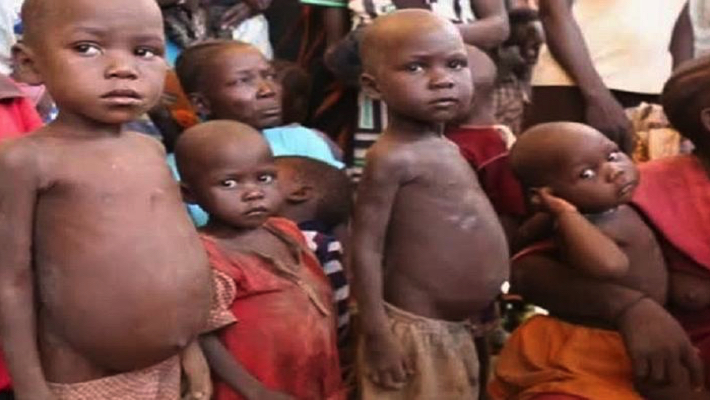
The United Nations (UN) has estimated that about 700,000 children in Borno, Yobe and Adamawa may be affected by the problem of food security and nutrition crisis in 2023.
“Almost 700,000 children under five are likely to suffer from life-threatening severe acute malnutrition (SAM) in Borno, Adamawa and Yobe (BAY) states in 2023,” the UN said.
It added, “This is more than double the number of SAM cases in 2022 and four times the number of cases in 2021.”
On Tuesday, Ann Weru, the spokesperson for the United Nations Office for the Coordination of Humanitarian Affairs (OCHA), Nigeria, said the UN had allocated $20 million to ramp up humanitarian response in North-Eastern states.
Ms Weru said the fund was from the Central Response Fund (CERF) and the Nigeria Humanitarian Fund (NHF).
“In support of government efforts, some $9 million in CERF funding and a complimentary $11 million NHF allocation will go towards a coordinated multisectoral response aimed at preventing deterioration to famine or famine-like conditions,” she stated.
The statement added that about half a million people in the affected states were expected to face emergency levels of food insecurity from June to August, which is the peak of “lean season”.
It further said the lean season coincided with the rainy season, known for diarrhoea and other outbreaks that could aggravate the precarious situation of malnourished children.
“Extremely high rates of acute malnutrition and deaths are predicted unless there is a rapid and significant scale-up of humanitarian assistance.
“Government, donors and the international community must make urgent funding available to protect the lives and future of vulnerable children in North-east Nigeria,” the statement quoted Matthias Schmale, the humanitarian coordinator for Nigeria, as saying.
It explained that the bulk of the CERF allocation would go to the World Food Programme to provide food security interventions, including food and voucher assistance for 95,000 extremely food-insecure people in three garrison towns of Borno.
It said $2 million would be spent on acute malnutrition prevention and $1 million on the Food and Agriculture Organisation for seeds and agriculture tools.
“Most of the NHF funding, $11 million, will go towards improving access to clean water and sanitation, hygiene, and nutrition, including reactivating, sustaining and scaling up the bed capacity at stabilization centres and scaling up outpatient therapeutic feeding programmes.
“The rest of the funding will go to healthcare, including the integrated management of childhood illnesses and complicated SAM cases, and to protection services with a focus on gender-based violence, child protection and mine action.
“The NHF aims to allocate 50 per cent of funding to eligible national partners on the frontlines,” the statement added.
(NAN)


